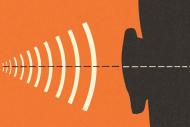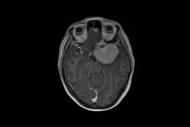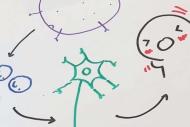Researchers have found a gene that links deafness to cell death in the inner ear in humans – creating new opportunities for averting hearing loss. A newly-discovered gene may explain how humans go deaf both as they age, and in response to loud noise.
UCSF-led study shows that tossing and turning may signal cognitive decline years later. Quality of sleep, not quantity, may play a part in the development of dementia decades before symptoms start.
Fortified stem cells. Enhanced memory. A longevity hormone. UCSF researchers are finding out whether we can cancel – or at least delay – old age. Fortified stem cells. Enhanced memory. A longevity hormone. UCSF researchers are finding out whether we can cancel – or at least delay – old age.
UCSF researchers reveal how some gene mutations lead to autism spectrum disorder. A new collaborative approach has begun revealing, in detail, how a set of around 100 autism spectrum disorder genes may lead to serious developmental problems. The technique involves looking beyond genes and their mutations, to the proteins they code for.
Thirty-two UCSF scientists are among the most influential individuals in their respective fields, according to the most recent analysis of research citations by the science and intellectual property company, Clarivate.
Brainstem recording shows that our tastebuds are the first line of defense against eating too fast. Understanding how may lead to new avenues for weight loss. A previously unknown signaling cycle stemming from our sense of taste helps suppress our appetites.
Grapes’ exposure to sun appears to increase compound that blocks metabolism of alcohol. Researchers offer a theory for why many people experience headaches as soon as 30 minutes after drinking red wine.
New test could change treatment for 1 in 3 patients with meningioma. A gene expression test can accurately predict the best treatment for meningioma patients by measuring the aggressiveness of their tumors and adjusting treatment accordingly.
Scientists discover a role for the nervous system in keeping itch and allergy under control. Scientists found that the nervous system tamps down allergic response, which could change how asthma, Crohn’s and other inflammatory diseases are treated.









